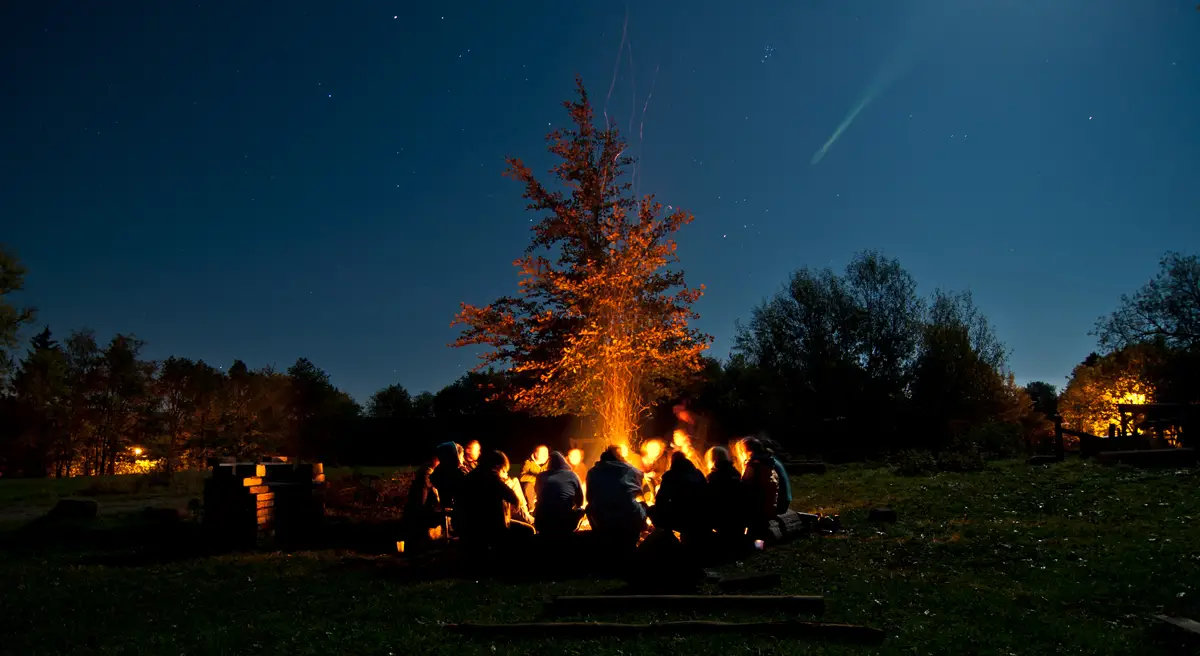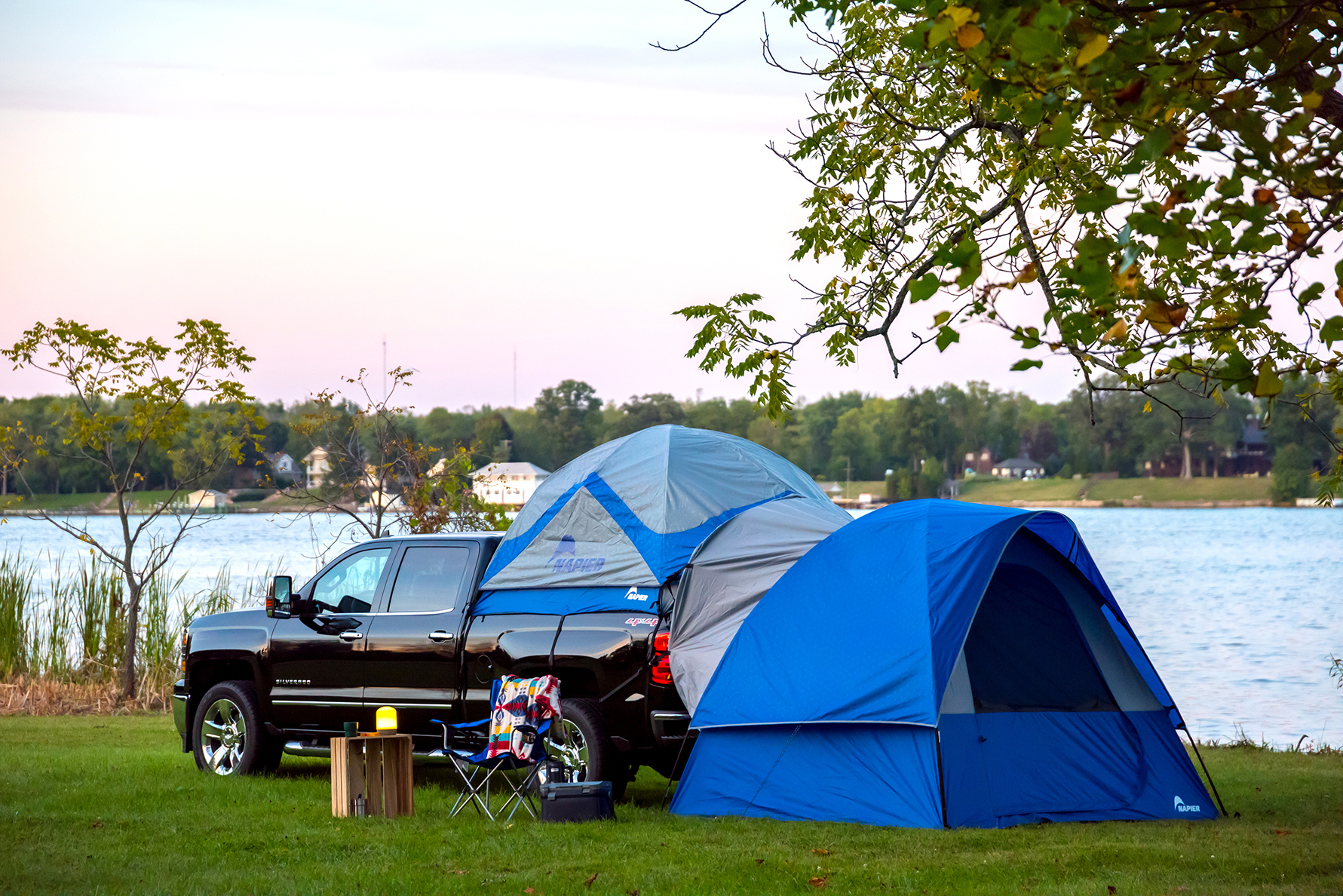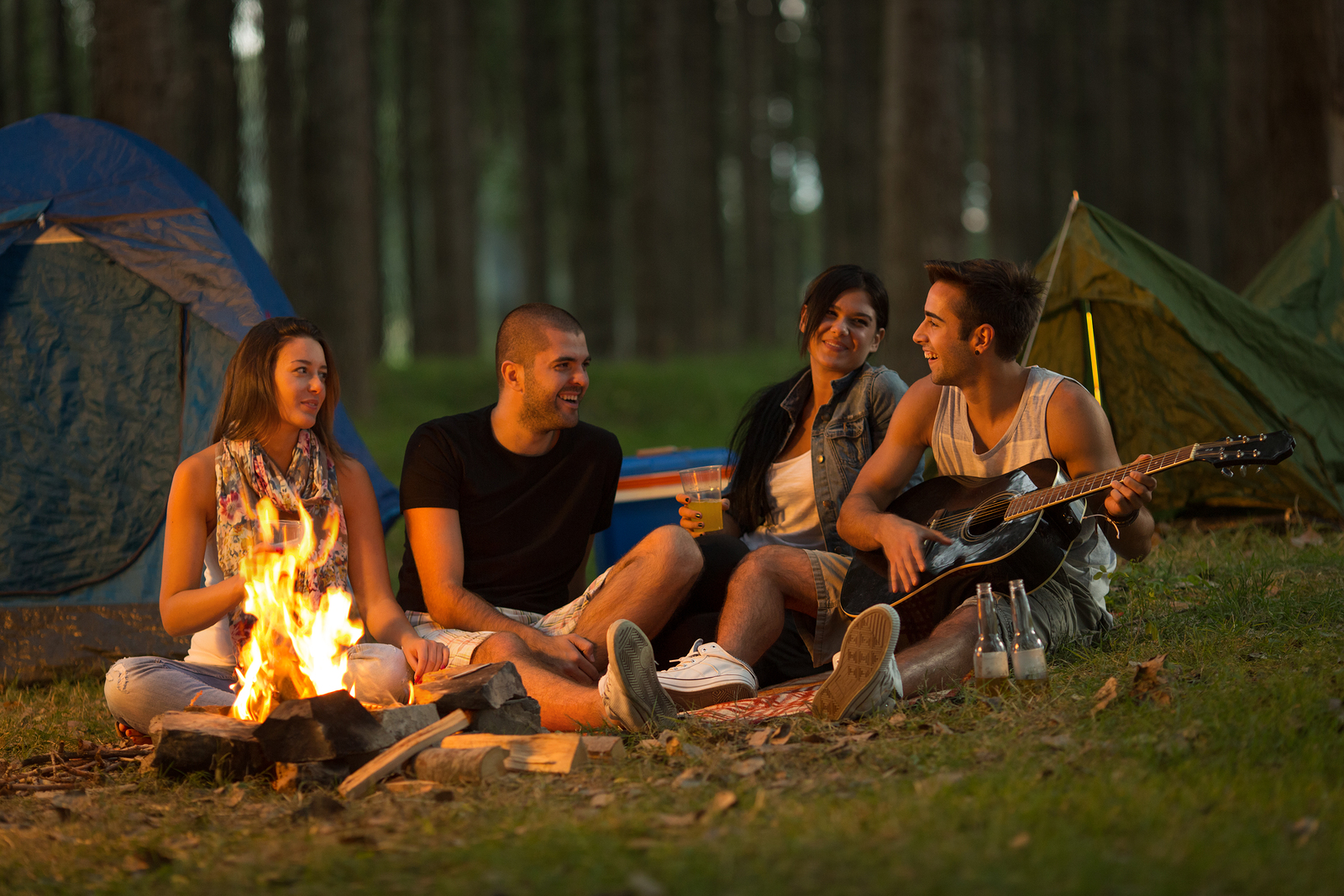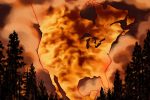Like art, everyone gets something different out of camping. The concept of limiting your distractions to whatever surrounds you and being determined to sleep peacefully in that environment is strangely alluring to people across the globe. Historically, camping involved several basic components, like makeshift shelters and fire, but recently, the American camping ritual has begun to take on new priorities.
Instead of connecting with nature and all of its uncomfortable facets, people are bringing the comforts of home with them, and, in doing so, are sapping the spirit of what it means to connect to the outdoors.
For instance, comedian Jim Gaffigan jokingly suggests bringing RVs when camping, because they are essentially a house outside of a house. Though sarcastically, Gaffigan hits on something worth mentioning—RVs. Driving the small home cross-country is one thing, but using the vehicle for a weekend camping trip seems like more trouble than it’s worth. You lose much of the camping experience too.
For example, like the comforts of home, electricity is essentially a necessity of modern American life, but when you decide to surround yourself with nature, it becomes a distraction that inhibits your body’s adaptive behavior. With the lowering of the sun, your eyes adjust to the darkness. The second someone turns on a flashlight or checks their phone, though, that night vision is gone, and it takes time to set in once again.
For this reason and more, disconnecting from Wi-Fi-enabled devices is important. For untold thousands of years, humans did not have Facebook, and instead, they developed complex methods of distant communication, like smoke signals and primitive drawings. To give up cellular reception is to immerse yourself in the environment.
When it comes to procuring light, long before there were iPads humans were naturally drawn to fire. Even the iconic survival expert, Bear Grylls, is an advocate for the positive psychological effects of building and maintaining a fire. A flickering flame is undoubtedly one of the greatest tools of mankind, and the romance between embers and humans is as old as life itself. In fact, that spark is still alive; just sit down, surrounded by darkness and stare into the beautiful, dancing flames with their crackling orchestras to rekindle it.

Though fires have remained untouched, another staple of camping, tents, have gone from waxed-canvas shelters to multi-room nylon palaces in the course of a single generation. The concept of a tent offers little in terms of security. The outdoor shelters will reduce bugs, while adding privacy, mental security and protection from the elements, but they are not extremely durable structures to begin with. In fact, the practice of setting up a tent is more of a ritual to the camper than it is a necessity.
Trail-vetted backpackers sometimes do not even carry tents; instead, they rely on their ability to find or make shelter. Nineteenth-century British explorer Sir Francis Galton details methods of camping and advice from other master outdoorsmen in his historically-acclaimed book, “The Art of Rough Travel.” Even though a windproof wall with a roof made of branches can be comfortable enough, if a tent is necessary, then, according to Galton, a tarp draped over a taut rope with closeable ends is the best option.
Whereas tents may be a luxury, a good sleeping bag is a must. High-tech sleeping bags offer sub-zero comfort, but that doesn’t mean the product is worth the price. Having any sleeping bag with layers of added comfort is cheaper and equally warm. Take any sleeping bag, add one or two blankets to the interior in layers and you would never know the difference. Alternatively, investing in a Pendleton wool blanket is warm enough by itself. Pendleton blankets are historically American, and they trace their roots back to 1863. I have taken my own on several hunting and camping trips, and I’ve never been disappointed.
Whether you have a high-tech bag or just some blankets, you are probably going to want to sleep on foam pads instead of the ground. Lifelong woodsman and American-frontier explorer George W. Sears, better known as Nessmuk, chronicled his wisdom and advice in a small book, “Woodcraft and Camping.”
In it, Sears addresses a common annoyance that entrepreneurs have sought to fix. “The usual drawbacks of a first night in camp are soon manifested in uneasy twistings and turnings, grumbling at stubs, knots and sticks that utterly ignore conformity with the angles of the human frame,” he writes.
Granted, foam pads have their benefits. They reduce the stubs, knots and sticks that Sears mentions, and they provide insulation between the camper and the cold ground. However, foam pads are big and cumbersome, not by weight but by size. Galton offers a free remedy for the problem: Digging a body-sized concave hollow.
“It is disagreeable enough to lie on a perfectly level surface, like that of a floor, but the acme of discomfort is to lie upon a convexity,” writes Galton, indicating that a concave terrain feature is more comfortable than any other. I can speak from experience that this is true. I no longer use foam pads for sleeping on the ground. Instead, I carve out a shallow grave and pay specific attention to rocks and roots that will seemingly magnify in size the moment my back presses against them.

In the end, camping is a spiritual experience. The idea of finding comfort in the earth is in itself comforting. I too get cold, and I hate waking up in the middle of the night to go use the restroom. I don’t particularly enjoy washing my face with cold water and waiting for my fire to come back to life. I do not find myself elated to hear bears walk through my campsite, witness snakes kill rodents mere feet away from my head or have coyotes mark my tent as their territory, but for me, the point is not in fun; it’s in adventure.
For me, camping is about giving up convenience. It’s living life the way it’s meant to be lived for a short period of time, and depriving myself of the option to buy cheeseburgers at a moment’s notice. Through deprivation, I find appreciation and, with it, follows a new zest for life.


















[…] Read more… […]
[…] “what makes the experience [of camping] worth the discomfort in the first place” according to Study Breaks, to simply being labeled as “pretentious bullsh*t.” But what if we are misunderstanding […]